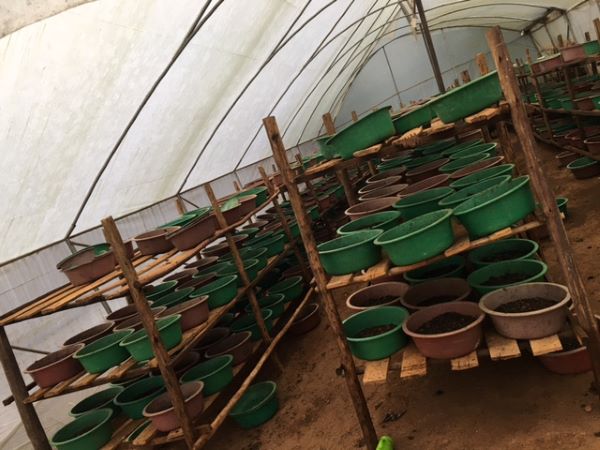
Francis Kavutse, 34, is a happy agriprenuer that his effort to pioneer and promote black soldier fly (BSF) farming in Rwanda is now fulfilling his dream of making affordable animal feeds for fellow farmers.
The venture he co-founded in 2019 has now seen him establish Maggot Farm Production Ltd, which specialises in maggot farming or black soldier fly rearing, an area, he says, no one knew much about.
“When we started this work, our vision was to do something that will not only to create a difference but also improve the much sought-after protein-rich animal feeds for livestock farmers in the country,” said Kavutse.
The idea came about at a time when the world organisations such as the World Health Organization (WHO) and the International Centre of Insect physiology and Ecology (ICIPE) were and have been promoting the adoption of insects in animal feeds and human nutrition.
Therefore, the enterprising farmer and his colleague Balthazar Masengesho set up their first farm at Kayonza District before moving to Kamonyi, in the Southern Province where there could get a more accommodating space.
They would begin serious production by upcycling green waste, brewery waste and household waste from the local community to feed fed BSF larvae.
This can take approximately 13 to 18 days for the larvae to consume the waste for them to reach an appropriate size they can be fed to livestock.
“This has provided alternative to silverfish the famers were relying on to integrate into animal and fish feeds,” said Kavutse.
He added that the farmers used to import the silverfish from Tanzania, Uganda, or Burundi, which made it quite costly to be used in animal feeds.
Training farmers
Kavutse and colleague who are experts in both Agriculture and Aquaculture innovatively have since started hands on skills training for both large and small scale farmers who are using farmed larvae’s and organic composite at large.
“Majorly we are focusing on empowering single mothers and youth as the key engineers in boosting maggot farming as substitute solution for fish meal to eliminate competitiveness for both human and livestock which is so expensive and so inadequate in Rwanda,” said Masengesho.
They provide training in full process of larvae production then equip the trainees with full package of starter black soldier fly circle as a campaign of boosting protein source in livestock sector.
Job creation
As a result, Maggot Farm Production Ltd has also created job opportunities for many through maggot farming, particularly targeting youth and women from vulnerable households, single mothers, and widows.
So far the company has 12 workers of which eight are women and the rest are youth. “Our mission is to teach more people on how to practice black soldier fly farming because it is lucrative.”
From 200kgs of maggots production a month in 2020 when the firm started production to 12 tonnes a month in 2021, today, their production capacity is at 14 tonnes a month.
“We are selling our product to people who are producing animal feeds and again, we can feed maggots directly to chicken, fish, and pigs,” said Kavutse.
Research has also revealed that maggots can also be dried, crushed, and mixed with other foods such as soya, maize, and more, to make a complete meal whether for humans or livestock.







